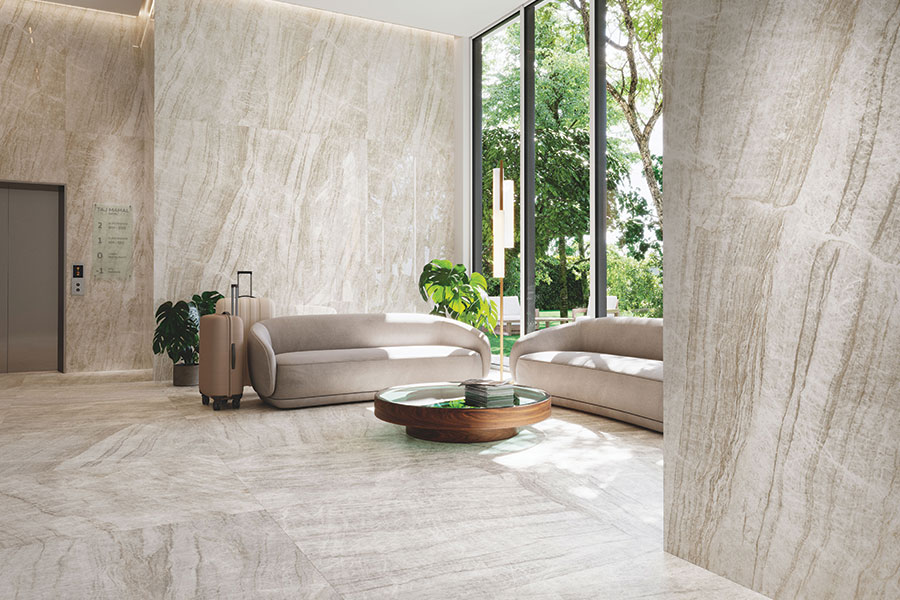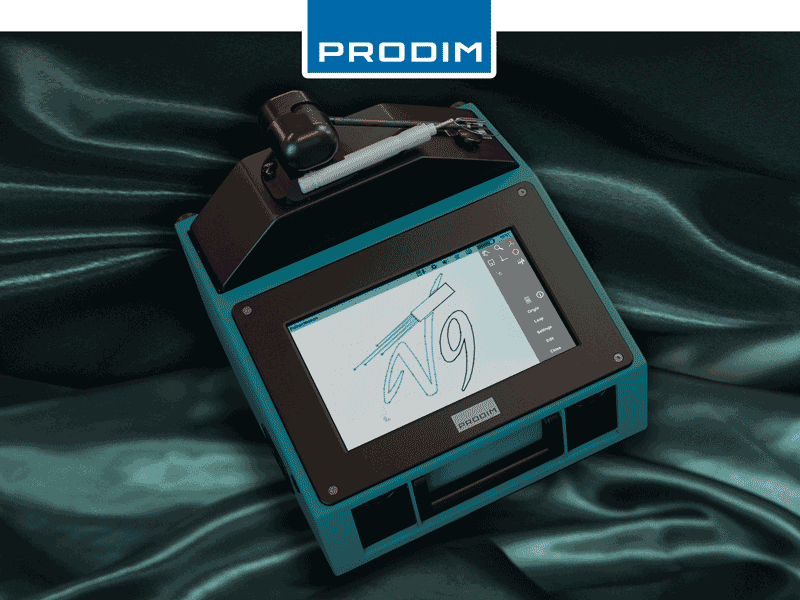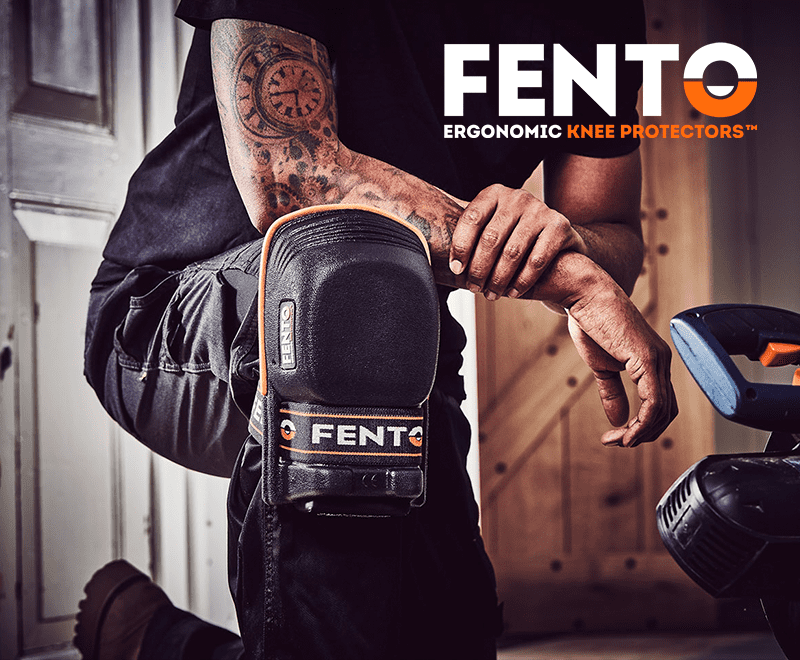ile of Spain provides an update on how Spanish manufacturers are dealing with the current market where the Spanish tile industry is headed.
AS 2025 unfolds, Spain’s ceramic tile industry continues to balance tradition with innovation, craftsmanship with technology, and growth with sustainability. ASCER, the Association of Spanish ceramic tile manufacturers, has released its latest data, reflecting cautious optimism for the sector, which remains one of the most dynamic and forward-looking within Spain’s manufacturing economy.
From steady production growth to pioneering sustainability initiatives, the Spanish tile sector demonstrates resilience, adaptability and a strong commitment to its role as a global leader in ceramic surfaces.
A sector of national importance
The Spanish tile industry is the third largest contributor to Spain’s trade balance, making a vital contribution to the Valencia region where 94% of Spain’s tiles are produced and the wider national economy. Of the 105 active manufacturers in 2024, 76% are small and medium-sized enterprises, while the remaining 24% are large companies, which account for nearly 80% of total production.
In 2024, total output reached 416m sq m – a 5.6% increase compared to 2023. While this remains below the pre-pandemic highs of 500m sq m, the positive trend signals a steady recovery. Porcelain continues to dominate production, representing 69% of the total, with large-format slabs over 1sq m showing a remarkable 26% year-on-year increase. This growth highlights the market’s appetite for versatile, technically advanced materials suitable for architectural and interior applications.
The industry has also witnessed a marked transition in raw materials: white body tiles now account for 87% of production, compared to just 49% in 2013. This shift reflects not only consumer preference but also advances in manufacturing that allow for lighter, stronger and more refined surfaces.
International reach: a truly global industry
Spain is among the world’s largest exporters of ceramic tiles, with over three quarters of its production destined for international markets. Between January and June 2025, global exports reached €1.83b – a 1.3% increase compared to the same period in 2024. The United States remains the single largest export destination at €263.3m, followed closely by France at €210.7m, with the UK in third place at €102.9m. With a 2.7% increase compared to the previous year, the UK continues to represent one of the most important markets for Spanish tiles, a reflection of their enduring popularity among British architects, specifiers and homeowners.
Energy, efficiency and renewable commitment
Ceramic tile manufacturing is energy intensive, particularly in the high-temperature firing stages, where natural gas remains the dominant fuel. In 2024, 90% of the sector’s energy consumption was gas, with the remaining 10% electricity. Yet significant progress has been made in energy diversification. Renewable photovoltaic self-consumption increased by 25% in 2024 and now represents nearly 9% of the sector’s electricity usage. Across Spain’s tile districts, 53 solar plants are already in operation, supplying factories directly and reducing reliance on external power grids.
High-efficiency cogeneration also grew by 7% in 2024, with 42 cogeneration plants achieving an impressive 88% average electrical efficiency – well above regulatory requirements. These plants not only provide reliable energy but also reduce primary energy consumption, reinforcing the sector’s drive toward decarbonisation.
Leading the way in circular economy
One of the defining strengths of the Spanish tile industry is its pioneering approach to resource efficiency and recycling. Currently, 93% of process waste, both solid and liquid, is recycled, an achievement that underlines the sector’s commitment to a zero-waste philosophy. The impact is considerable. In 2023, Spanish tile manufacturers saved 810,000 tonnes of raw materials, an amount equal to the weight of 75 Eiffel Towers. They also conserved 923m litres of water, the equivalent of 37 Olympic swimming pools, while preventing 450,000 tonnes of CO2 emissions, comparable to the annual emissions of 112,500 households.
Such achievements underscore the industry’s alignment with EU circular economy principles and its ability to combine environmental responsibility with competitiveness.
Transparency and certification: the sectoral EPD
ASCER has renewed and extended its sectoral Environmental Product Declaration (EPD) for another five years, covering all member companies. An EPD is a third-party verified document that provides transparent, comparable data on the environmental performance of a product throughout its life cycle, in line with ISO 14025 standards. For architects, specifiers and designers, this means clear, reliable evidence that Spanish tiles meet the highest sustainability benchmarks.
By maintaining a sectoral EPD, in addition to individual EPDs from leading manufacturers, Spain sets itself apart from other tile-producing nations, giving professionals confidence in the material’s sustainability credentials.
Challenges ahead
Despite its progress, the Spanish tile industry faces significant challenges in its sustainability journey. Many of the most promising decarbonisation solutions are still at pilot stage and not yet adapted to the high-temperature, continuous processes of ceramic manufacturing. Transitioning to renewable energy, electrification, or hydrogen requires substantial investment, which can be particularly daunting for SMEs. Lengthy permitting processes and complex regulations add further hurdles, slowing the rollout of renewable projects and factory upgrades.
Perhaps most concerning, manufacturers outside the EU aren’t subject to the same environmental requirements, putting Spanish producers at a cost disadvantage. Without stronger public support and targeted funding, the industry warns, its ability to remain competitive while meeting EU climate targets could be jeopardised.
The secret ingredient: shining a spotlight on the European ceramics industry
In September 2024, ASCER launched a campaign titled ‘The secret ingredient’ in order to shine a spotlight on the excellent work of the European ceramics industry. Europe is the cradle of the global ceramics industry and historically it’s been the benchmark for the highest quality, the most advanced manufacturing methods, the most sustainable production and the most attractive designs. In the present day, the European ceramics industry faces a challenge, given that ceramics from other regions of the world are constantly entering this market and they don’t follow the principle of reciprocity required in Europe.
With this campaign, the industry is seeking to showcase the values, attributes and qualities which make European ceramics unique: respect for the environment, respect for labour rights, attention to detail, investment in innovation, tradition and cultural heritage, and local roots.
Looking ahead: 2030 and beyond
The EU has set ambitious goals: a 55% reduction in greenhouse gas emissions by 2030 and full climate neutrality by 2050. For the Spanish tile industry, these targets are both a challenge and a catalyst for innovation. The sector’s roadmap focuses on expanding renewable energy use, scaling circular economy practices to further reduce waste and emissions, increasing research and development investment into decarbonisation technologies, and strengthening transparency and certification to reassure international markets.
With its strong culture of innovation, global reputation for quality and track record of adapting to change, the Spanish tile industry is determined to lead by example.
A message to tile distributors and contractors
For distributors and contractors in the UK and worldwide, choosing Spanish tiles means more than selecting a material of beauty and durability. It means supporting an industry committed to sustainability, innovation and responsibility – an industry that balances competitiveness with care for the environment.
www.tileofspain.com











